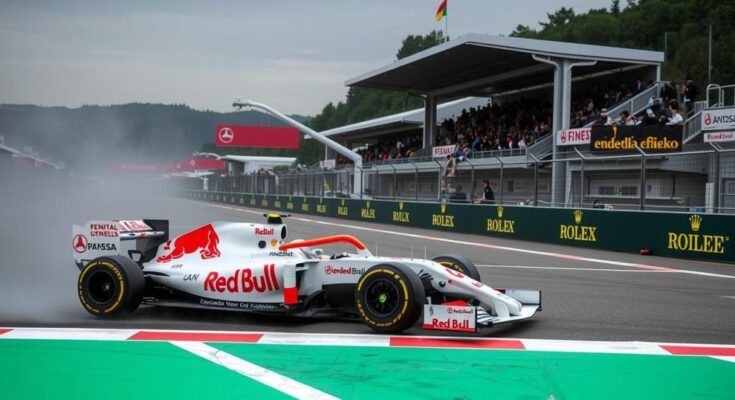The article criticizes the efforts of Rwanda, South Africa, and Thailand to host Formula One races, emphasizing the appropriateness of such ambitions given the countries’ socioeconomic challenges. It highlights the financial difficulties in securing funding for Grand Prix events, the priorities of the local populations, and suggests that F1 should engage in more financially prudent and community-driven strategies if it seeks to expand into these regions.
As Formula One teams and drivers take a well-deserved break, several countries are fervently vying for inclusion in the F1 calendar. Notably, Rwanda, South Africa, and Thailand have expressed aspirations to host a Grand Prix. However, these nations share a pressing need to prioritize essential issues over luxury sporting events, which have little relevance in their current socioeconomic landscapes. South Africa’s sports minister, Gayton McKenzie, highlighted the disparity in representation, stating, “Africa, with 54 countries, has none” amid the European dominance of F1 races.
The ambitions to bring Formula One back to South Africa and other nations often face the daunting challenge of securing financial backing. Despite repeated attempts to revive the Grand Prix at Kyalami circuit, the prevailing sentiment remains that funding is elusive. The risks of financial losses are evident; previous examples like the Malaysian Grand Prix illustrate that hosting these events may incur more costs than benefits. With significant portions of the population in these countries living below the poverty line, the idea of diverting public funds into hosting a Grand Prix is contentious. Citizens would likely prefer improved infrastructure and basic necessities such as reliable utilities over luxury motorsport.
Critically, if Formula One and the FIA are earnest in contemplating motorsport expansion into Africa and impoverished regions of Asia, they ought to reassess their approach. A potential solution could involve waiving organizational fees and offering affordable ticketing for local populations, accompanied by investments into grassroots motorsport initiatives. Such measures would provide tangible benefits to the local communities while fostering a genuine interest in motorsport.
This article critically examines the appropriateness of hosting Formula One races in developing countries like Rwanda, South Africa, and Thailand, where pressing social issues prevail over luxury-focused events. It discusses the socioeconomic implications of prioritizing expensive sporting events in countries where a significant portion of the population struggles with basic needs, such as sufficient food and reliable infrastructure. The article draws attention to the unlikeliness of attracting substantial international tourism and emphasizes the need for financial pragmatism in the motorsport industry, urging the FIA and F1 to revise their strategies regarding the organization of Grand Prix events in these regions.
In summary, while the aspirations of Rwanda, South Africa, and Thailand to host Formula One races reflect a desire for greater representation in the sport, the reality is that these nations face urgent socioeconomic challenges that should take precedence. The potential financial burden of hosting such an event far outweighs any perceived benefits, particularly in countries struggling with poverty and inadequate infrastructure. Therefore, a strategic reevaluation by the FIA and Formula One is necessary to ensure that any local engagement with motorsport is genuinely beneficial to the community rather than an imposition of luxury on a struggling populace.
Original Source: www.gpblog.com




